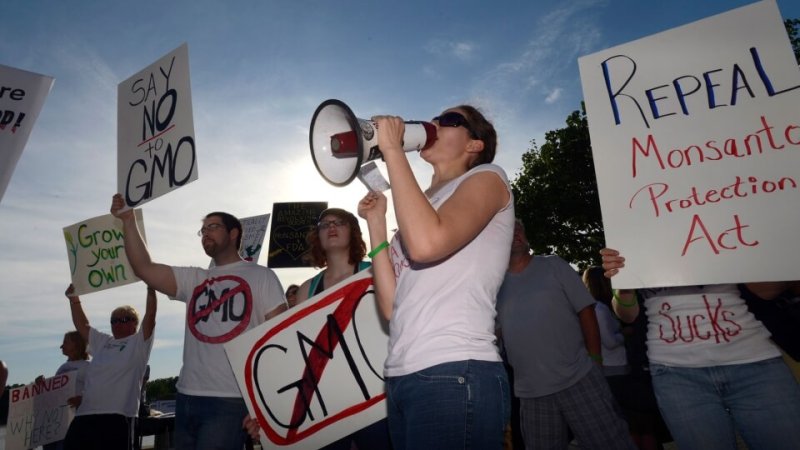In the basement of Koshland Hall at the University of California at Berkeley is a trove of seeds with the potential to fix some of agriculture’s most vexing problems.
There are wheat seeds—both hypoallergenic, so more people could eat it, and of a variety able to better withstand unpredictable rainfall—a growing problem because of climate change. UC Berkeley scientists also developed seeds for tomatoes resistant to bacterial spot disease, producing a plant that could combat a pock-marking that leaves the fruit scarred and undesirable. There’s even a fast-germinating barley that could save beer brewers millions of dollars.
Aside from their potential, each of these innovations has something else in common: They’re all the result of genetic modification. And that’s where the problems start.
“None of what we’ve done has made it anywhere,” says Peggy Lemaux, a crop biotechnologist at Berkeley.
From Lemaux’s perspective, loud, anti-GMO sentiment from activists and consumer groups have kept investors away, even when there’s a huge opportunity for benefits—and profit. That speedy barley, for example, was developed at the request of beer giant Coors Brewing Co. (now Molson Coors Brewing Co.) But when it was ready, Lemaux said, Coors no longer wanted it. “By the time we went back to them, they were like, ‘oh no, we’re not doing that.’”
Read full, original post: GMOs Might Feed the World If Only Investors Weren’t So Scared































